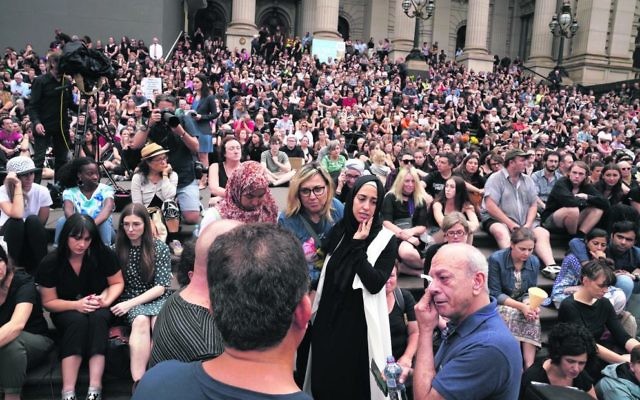A community united in grief at Aiia’s murder
Nothing can undo the tragedy of this murder, but . . . the engagement by our political leaders and the outpouring of feeling by ordinary Melburnians has by all accounts given comfort to the Maasarwe family.

THE murder in Melbourne of Israeli student Aiia Maasarwe is a tragedy on every level. Her life and its rich opportunity, frozen at 21 by an act of shocking violence; a family with an unimaginable loss; a community stunned and once again forced to confront the issue of personal safety on our streets.
Does Aiia join Jill and Eurydice in some sort of bizarre Groundhog Day that seems to endlessly devour women engaged in the ordinary activity of walking home?
Aiia Maasarwe’s murder and the grief of her father, very much in the public eye, has dominated the news, as is appropriate. But the discourse and commentary which has surrounded this senseless act is also fuelled by the social and political environment in which it has occurred.
For the local Jewish community, the murder of an Israeli student in Melbourne would normally evoke a strong and supportive response from the leaders of our community – but this time our response is as part of the wider community.
For the people active in discussion about the Israeli/Palestinian conflict, there are identity issues.
Should Aiia Maasarwe be referred to as an Israeli, an Israeli Arab, a Palestinian Israeli, a Palestinian?
For those who see the wider issue of male violence against women, this reinforces the urgent need to change attitudes and behaviour by confronting the carnage and devastation that results.
For Melburnians, we ask how this could happen once again in Melbourne. This is not a city we think of as dangerous and violent, yet here we are mourning the murder of another young woman.
But there is one aspect of the response to Aiia’s murder that brings me a degree of comfort.
The beginning of chapter 21 of Devarim (Deuteronomy) talks about the responsibility of a community if a slain person is found in the open. The text itself provides a ritual to be conducted, involving both the High Priest and the elders of the nearest city coming together to acknowledge what has occurred and make a declaration.
The essence of the ritual is to provide some form of atonement for the spilled blood of the victim. One commentator notes that if the victim had been accompanied, the murder might not have happened.
In Australia, the Prime Minister met with Aiia’s father, Saeed. The Leader of the Opposition as well as the Premier of Victoria offered their condolences to the Maasarwe family.
In Melbourne, over 1,000 people came together for a vigil last Friday evening, in honour of Aiia. On Sunday there was another communal gathering to which Aiia’s father came and was given support.
These acts seem in many ways to parallel the biblical ritual and they occurred not as a formal process, but as a spontaneous response by a community which has displayed care for the preciousness of life and expressed sorrow in a time of grief.
Nothing can undo the tragedy of this murder, but if indifference is a mark of a society without a soul, the engagement by our political leaders and the outpouring of feeling by ordinary Melburnians has by all accounts given comfort to the Maasarwe family and to all affected by the loss of their daughter and sister.
HAROLD ZWIER is a board member of the Jewish Christian and Muslim Association, but the views expressed here are entirely his own.

comments